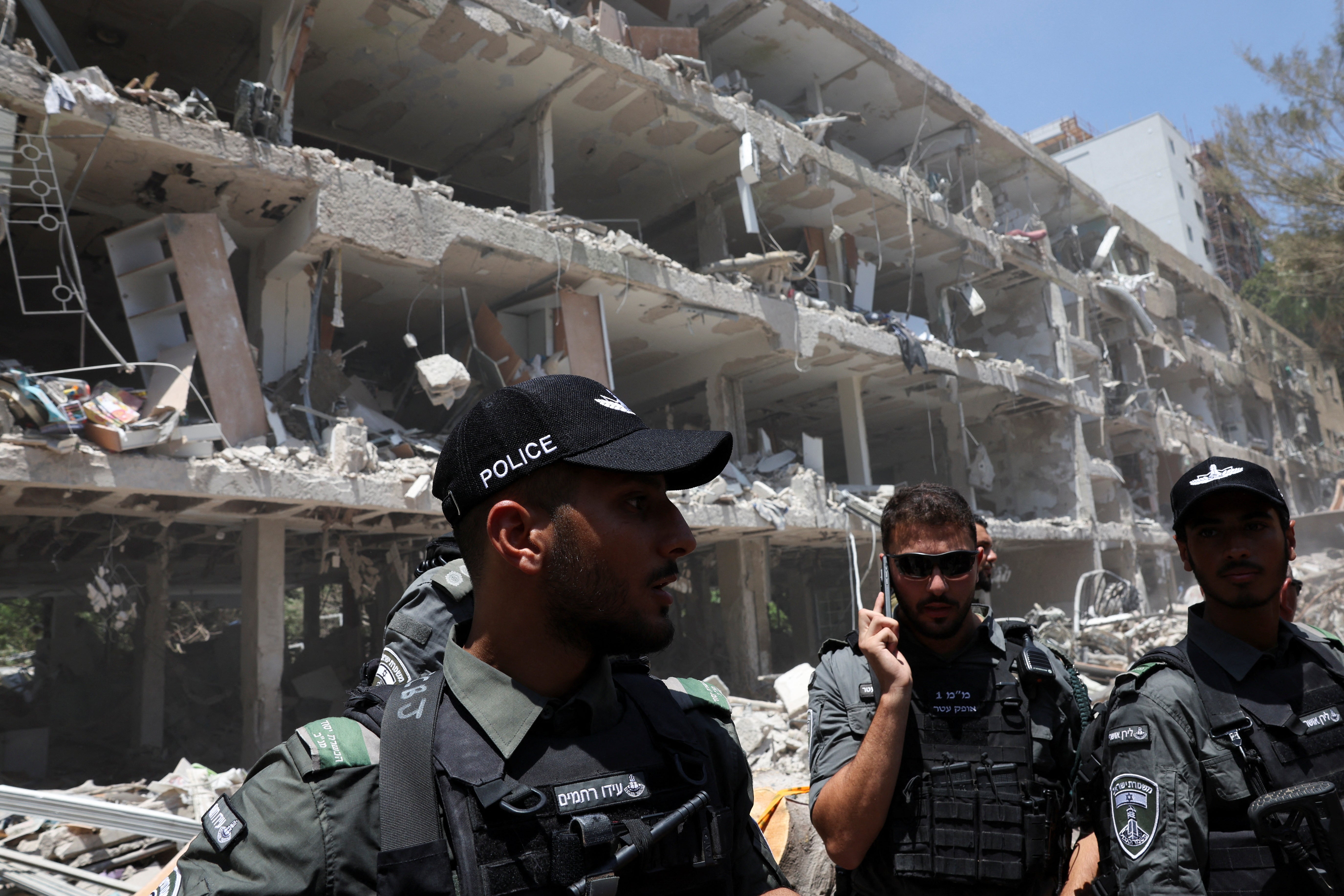CNN’s Anderson Cooper and the rest of the network’s team had to leave their rooftop set during a live broadcast from Tel Aviv on Monday as missile alerts rang out across the city.
The team evacuated the set and moved to underground bomb shelters while still on the air. Cooper was speaking to CNN’s chief international correspondent Clarissa Ward and Jerusalem correspondent Jeremy Diamond at 3 a.m. local time when air raid sirens and phone alerts began to blare.
“I should just say that we’re now hearing an alert,” Ward said.
“So these are the alerts that go out on all of our phones when you’re in Israel,” Cooper said. “It’s a 10-minute warning of incoming missiles or something incoming from Iran. ... Now the location we’re in has a verbal alarm telling people to go down into bomb shelters.”
The crew then had a 10-minute window to “get down into a bomb shelter, and we’ll continue to try to broadcast from that bomb shelter, and even if we can, on the way down.”

“Should we go down, or do you want to finish this?” Ward asked.
“We should probably go down,” Cooper responded with a laugh.
“Are we able to do that?” he asked a camera operator.
Ward and Diamond discussed the growing crisis between Iran and Israel as the crew began preparing to move the equipment to keep the broadcast going. Ward and Diamond noted how American attacks on Iran’s nuclear production facilities could lead to attacks from Iranian proxy groups in the area.
“This is the first time today that we have had an alarm like this,” Cooper said. “It’s obviously something that many here in Tel Aviv have gotten used to over the last 10 or 11 days since this began. We saw one. There was one alarm shortly after, several hours after the first strike, the strikes on Iran by the United States. This is the first one we’ve had this morning.”
CNN lost signal for a short period of time as Cooper, Ward, and Diamond discussed the Iranian missile attacks and the impact they were having on regular life in Israel as they moved to the shelter.
President Donald Trump entered Israel’s war with Iran on Sunday local time, striking three Iranian nuclear facilities he claimed were “completely, totally obliterated.”
On Monday, Israel launched strikes on Tehran, the Iranian capital, as well as access routes to Fordo, one of three nuclear enrichment sites targeted by American bombs.
Strikes between Iran and Israel have continued as world leaders demand de-escalation or risk a broader crisis across the Middle East and internationally.
U.S. military and intelligence officials have found possible indications that militias backed by Iran were preparing to attack American bases in Iraq and possibly Syria.
Iranian Supreme Leader Ayatollah Ali Khamenei has yet to make any public statements more than 36 hours after the attacks by the United States.
Trump pleads with oil companies to keep prices down after Iran blockade threat
US-Iran latest: Tehran threatens Trump with ‘decisive response’ after strikes on nuclear sites
Watch live: David Lammy addresses parliament after US strikes Iran
Briton injured in Iran missile attack as first evacuation flight from Israel leaves
Israel-Iran conflict mapped: A timeline of how the attacks unfolded







